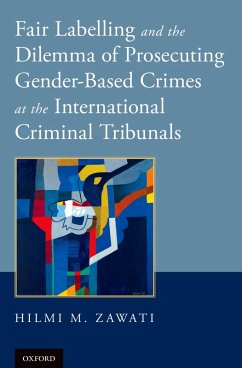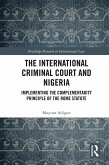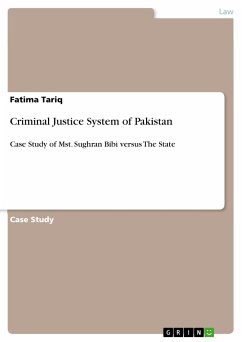This scholarly legal work focuses on the dilemma of prosecuting gender-based crimes under the statutes of the international criminal tribunals with reference to the principle of fair labelling. In this book Hilmi M. Zawati explains how the abstractness and lack of accurate description of gender-based crimes in the statutory laws of the international criminal tribunals and courts infringe the principle of fair labelling, lead to inconsistent verdicts and punishments, and cause inadequate prosecution of these crimes. This inquiry deals with gender-based crimes as a case study, and with fair labelling as a legal principle and a theoretical framework. Critical and timely, this study contributes to existing scholarship in many different ways. It is the first legal analysis to focus on the dilemma of prosecuting and punishing wartime gender-based crimes in the statutory laws of the international criminal tribunals and the ICC in the context of fair labelling. Moreover, it emphasizes that applying fair labelling to wartime gender-based crimes would enable the tribunals and the ICC to deliver fair judgments, eliminate inconsistent prosecution, overcome shortcomings in addressing gender-based crimes within their jurisprudence, while breaking the cycle of impunity for these crimes. Consisting of two parts, this work begins by outlining the central focus and theoretical legal framework of the study. It concentrates on fair labelling as an imperative legal principle and a legal framework, examines its intellectual development, scope and justification, and illustrates its applicability to gender-based crimes. The second part addresses the dilemma of prosecuting gender-based crimes in the international criminal tribunals.
Dieser Download kann aus rechtlichen Gründen nur mit Rechnungsadresse in A, B, BG, CY, CZ, D, DK, EW, E, FIN, F, GR, HR, H, IRL, I, LT, L, LR, M, NL, PL, P, R, S, SLO, SK ausgeliefert werden.









